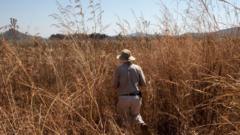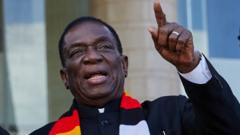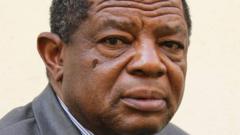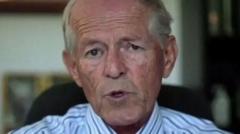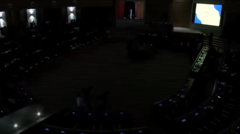The recent legislation requiring Zimbabwean motorists to pay an annual radio licence fee has faced significant backlash, with critics labeling it burdensome and insensitive. The move aims to support the financially struggling state broadcaster, yet many view it as an excessive toll during tough economic times.
Zimbabwe's New Radio Levy Stirs Controversy Among Drivers

Zimbabwe's New Radio Levy Stirs Controversy Among Drivers
President Mnangagwa's approval of a radio licence fee for motorists ignites public outrage amid economic struggles.
Zimbabwe's President Emmerson Mnangagwa has enacted a controversial bill mandating that all drivers purchase a radio licence prior to acquiring vehicle insurance. The regulation, which has led to protests from many in the driving community, imposes a fee of $92 (£68) per year, purportedly to enhance revenue for the state-run broadcaster, the Zimbabwe Broadcasting Corporation (ZBC).
Critics argue that this licence fee represents an undue financial burden, particularly in light of the prevailing economic hardships experienced by citizens. Notable opposition leader Nelson Chamisa has described the requirement as "draconian" and "heartless." Addressing the uproar online, government spokesperson Nick Mangwana defended the legislation as "necessary" and equitably applied.
Currently, Zimbabwe boasts about 1.2 million registered vehicles, yet only around 800,000 are covered by insurance, according to local reports. The ZBC, which struggles to generate sufficient funds, relies heavily on both the licence fee and government support. With ongoing accusations of biased reporting favoring the ruling Zanu-PF party, many citizens have called for the abolition of the licence fee altogether.
The new law, part of the Broadcasting Services Amendment Act, requires that motorists prove their radio licence is valid to renew their vehicle insurance or obtain necessary permits from the Zimbabwe National Road Authority (Zinara). The established fee breakdown sees the cost set at $23 quarterly. There may be exemptions, especially for tourists, but the overarching aim is to close loopholes and enforce compliance.
The response from the public has been fierce. Citizens deem the measure an "unjust assault on motorists," adding that the government's approach toward taxation and fees has become increasingly insensitive. Chamisa expressed frustration over what he perceives as relentless financial pressures placed on the populace, urging the leadership to show empathy toward its citizens during these challenging economic times.




